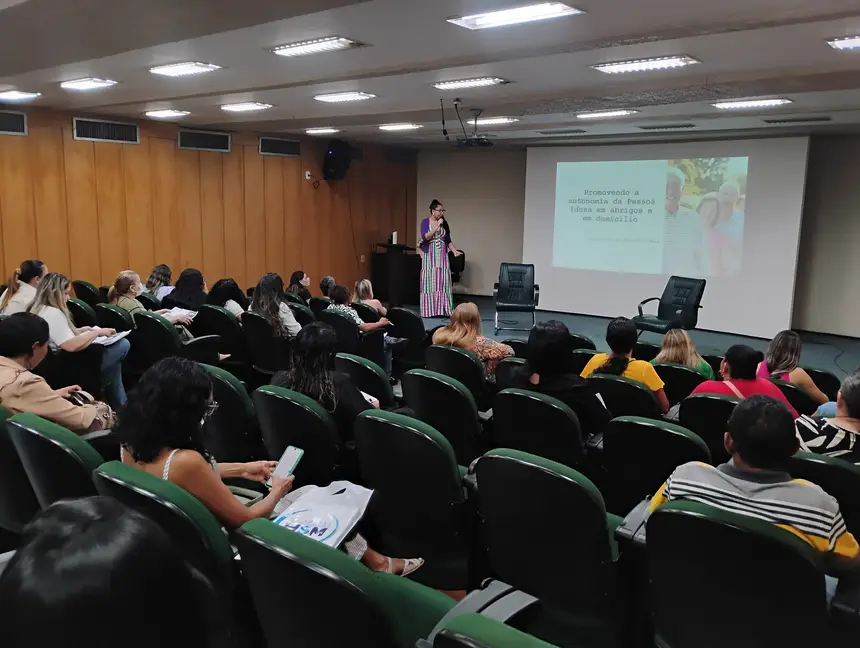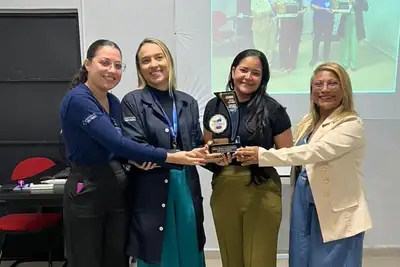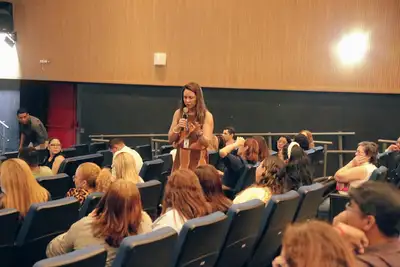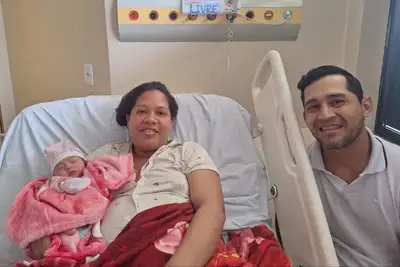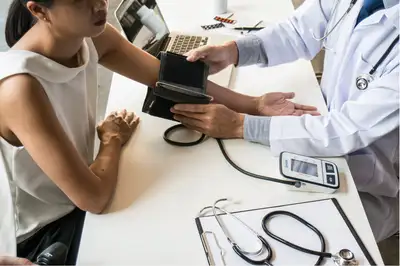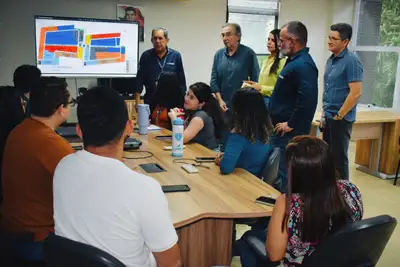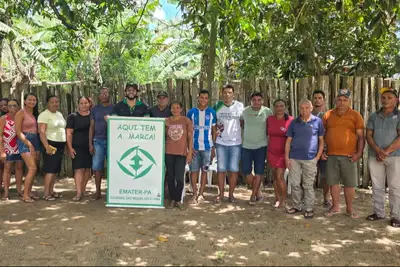State promotes training focused on the reception and autonomy of the elderly
Event brought together social assistance professionals to strengthen care practices and ensure autonomy and quality of life for elderly individuals
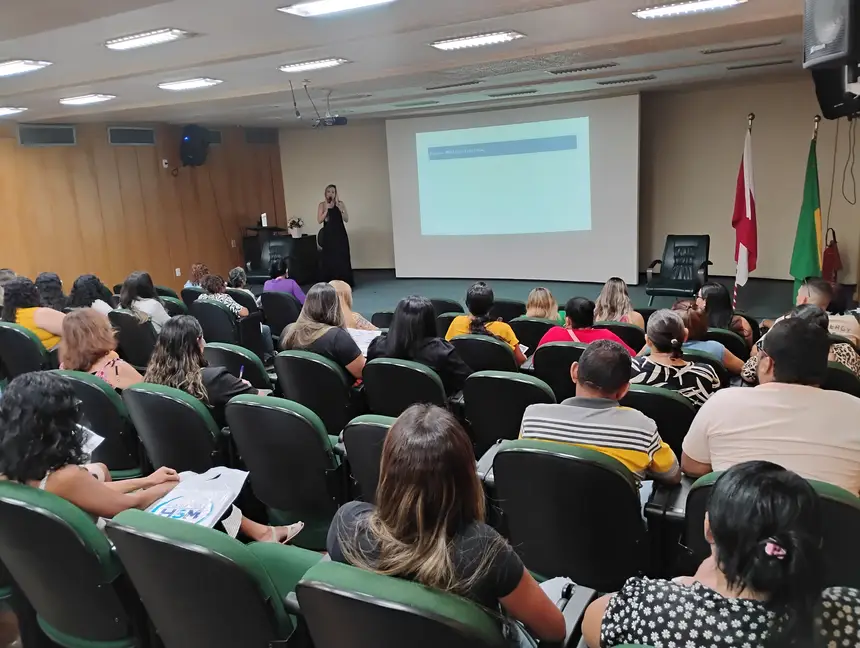
The Government of Pará, through the Secretary of Social Assistance, Labor, Employment and Income (Seaster), held a training on June 17 and 18 aimed at professionals working in the reception services for elderly individuals. The objective was to strengthen care practices and promote the autonomy of the elderly both in health institutions and in the home environment.
The meeting, held at the State Governance School of Pará (Egpa), brought together professionals from the state and municipal social assistance network who work directly in institutional reception and home care linked to the Unified Social Assistance System (SUAS).
During the program, participants were able to reflect on strategies to ensure dignified and active aging, ensuring respect for each elderly person's life history and the fulfillment of their fundamental rights. The event included lectures, workshops, debates, and the exchange of experiences.
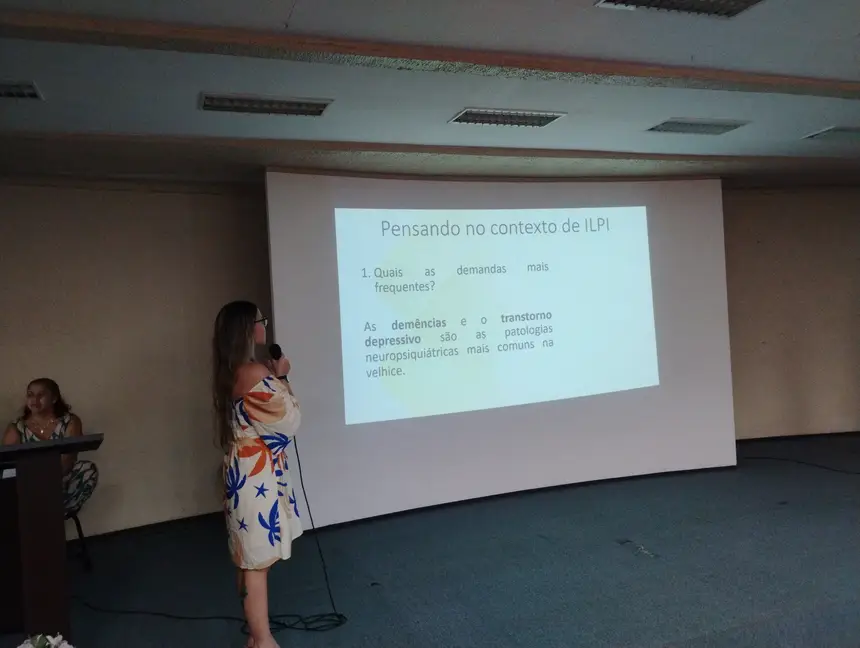
For Carla Lima, social worker at Seaster and manager of high complexity, investment in training is essential to improve service in public facilities dedicated to the elderly. “Seaster has two reception units, Nosso Lar Socorro Gabriel and Lar Providência, which together serve up to 100 elderly individuals. With this training, we aim to broaden the perspective on the elderly and further qualify the services provided in these spaces,” she stated.
One of the highlights of the program was the lecture by occupational therapist Juciane Lima do Nascimento, a professional from Lar da Providência. With experience in the field, she addressed topics such as the difference between hospital and home care, the importance of stimulating the autonomy of the elderly, and the need for professionals to update themselves in light of new technologies.
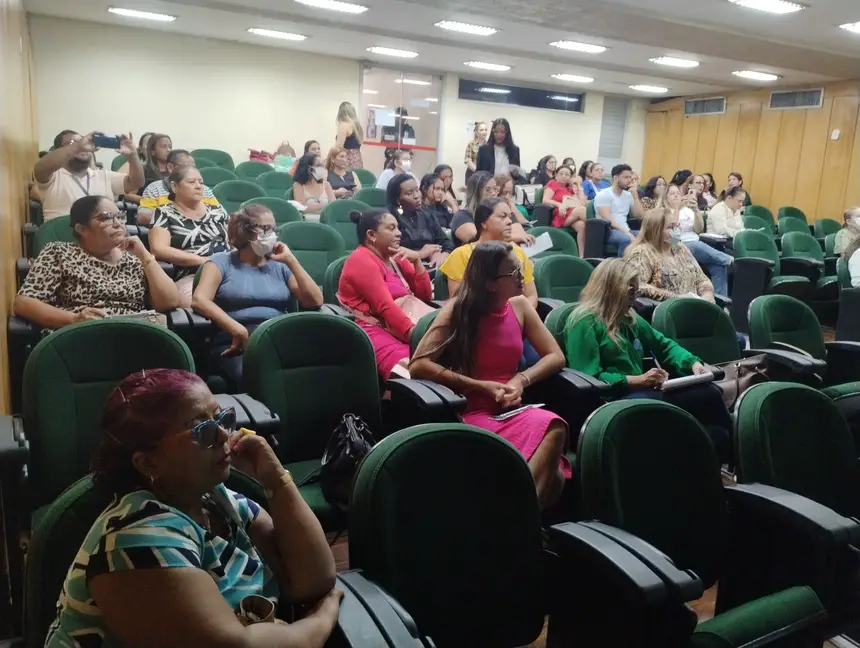
“This advancement is essential for the professional to act consciously and prepared alongside the elderly. Our focus is to ensure a humanized and efficient service,” emphasized Juciane.
The initiative reinforces the commitment of the Government of Pará to building a fairer and more inclusive society, prioritizing public policies that ensure dignified aging, with quality of life and respect for the specificities of this phase.
“The expansion and strengthening of these policies are urgent in light of the growth of the elderly population in Brazil,” assessed Paula de Jesus, psychologist at the Papa João XXIII Foundation (Funpapa). “Qualifying services and ensuring inclusion are essential steps in this process,” she added.
The Secretary of Seaster, Inocêncio Gasparim, also highlighted the importance of continuous investment in actions like this. “We continue to work to ensure more projects, training, and investments that guarantee rights and dignity to elderly individuals in vulnerable situations,” he concluded.
With the collaboration of Matheus Gomes/Ascom - Seaster


